Tag: Stuart Wilks-Heeg

Election petitions remain important to the integrity of UK elections, but reforms are urgently needed
Until recently, widespread confidence about the integrity of UK elections meant that almost no information was available about election petitions, the only legal mechanism through which a UK election result can be challenged. Stuart Wilks-Heeg and Caroline Morris present significant new data about elections petitions from 1900 to 2016. Their findings fill an important gap in our historical knowledge about electoral integrity and inform current debates about the need to reform the petition mechanism.

Voter ID at British polling stations – learning the right lessons from Northern Ireland
Asking voters to produce a form of identification before voting will be piloted in five English council areas this May. The move represents part of the government’s response to a series of recent recommendations for measures to safeguard the electoral process from fraud. While the pilots will provide important opportunities for policy-learning, Stuart Wilks-Heeg argues that much can already be gleaned from the experience of Northern Ireland, where voter ID was first introduced in 1985.
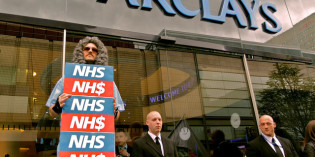
The recent Tory fundraiser exposé offers a vital glimpse into the black box of political-corporate ties
Earlier this week, the Bureau of Investigative Journalism released the identities of the attendees of a Conservative Party fundraising dinner, in which an assortment of oligarchs, businessmen and lobbyists paid large amounts of money to dine and drink with members of the Cabinet, including the Prime Minister himself. Here, Stuart Wilks-Heeg argues that a state […]
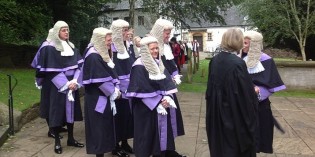
Legal aid cuts may mean excluded members of society are denied access to a vital part of our democratic system
Thousands of lawyers are today protesting outside courts at planned cuts to legal aid. Stuart Wilks-Heeg, Stephen Crone, and Andrew Blick considered this topic in the 2012 audit of UK democracy, identifying concerns about the difficulty citizens face in accessing legal aid, which have intensified since the coalition government was elected. It is clearly necessary, if the rule of […]
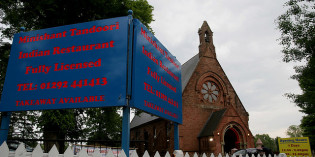
Protections for the freedom of religion have improved over the last decade
In the 2012 Audit of Democracy, Stuart Wilks-Heeg, Stephen Crone, and Andrew Blick looked at the key issue of religious freedom in Britain. While the country remains relatively secular in practice, the British state is tied up by anachronistic historical relics such as an established church and the continued presence of Bishops in the House of Lords. Despite […]
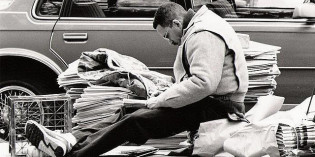
The political affiliations of the UK’s national newspapers have shifted, but there is again a heavy Tory predominance
The 2010 General Election saw the Conservatives gain a number of newspaper endorsements, and failed to win outright. But while there is a consensus that newspaper endorsements matter less today than they once did, they remain a significant force in shaping the political outlooks of their readers. In the 2012 Audit of Democracy, Stuart Wilks-Heeg, Andrew […]

MPs pay has risen sharply since the 1970s – but it is outside earnings that should really concern us
There is a long tradition of elected representatives in the UK drawing income from activities ‘external’ to their work in parliament. In part, this tradition reflects the belated acceptance of a need to pay MPs a full salary. In the 2012 Audit of UK democracy, Stuart Wilks-Heeg, Andrew Blick and Stephen Crone looked at the […]
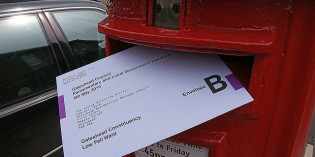
What is the extent of electoral fraud at English elections?
The Attorney General Dominic Grieve MP has apologised for controversial remarks about corruption among ethnic minority groups in the UK. In the 2012 audit of UK democracy, Stuart Wilks-Heeg, Andrew Blick and Stephen Crone examined the extent of electoral fraud in English elections, finding that instances had fallen in recent years after a sharp increase […]
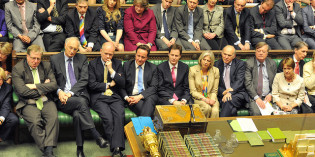
Britain’s bloated payroll vote hampers Parliament in keeping a check on the executive
The latest Coalition reshuffle saw the size of the payroll vote remain steady, with 140 members of the Government benches in the House of Commons now compelled to vote in line with the frontbench, or else lose their position. In previous Democratic Audit reports and articles, Stuart Wilks-Heeg, Andrew Blick, and Stephen Crone have considered the […]
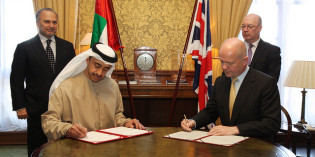
The UK is inconsistent in its support for human rights and democracy overseas
In the 2012 audit of UK democracy, Stuart Wilks-Heeg, Andrew Blick, and Stephen Crone discussed the role of the UK in promoting democracy and human rights overseas. They found the UK purports to set itself high standards in this area, and has made progress recently by agreeing new international human rights instruments. Our relationship with the European Convention on Human Rights suggest […]


 Democratic Audit's core funding is provided by the Joseph Rowntree Charitable Trust. Additional funding is provided by the London School of Economics.
Democratic Audit's core funding is provided by the Joseph Rowntree Charitable Trust. Additional funding is provided by the London School of Economics.